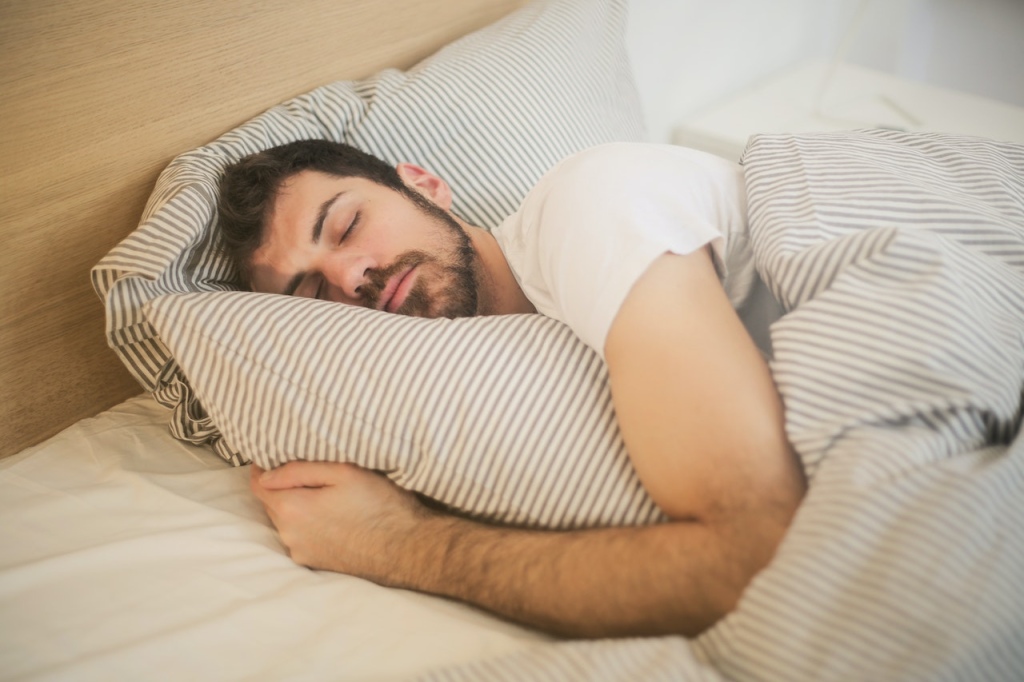Amazing as it sounds, the average person spends a third of their life sleeping – or at least, trying to, as one in three people in the UK experiences insomnia at some point, according to the NHS.
Sleep is an essential process for health, balance and well-being. And rest – taking time to relax and rejuvenate while awake – is another important part of the puzzle.
Lack of either of these can potentially lower your immune system, and negatively affect memory and mood.
So how do you know if you’re getting enough sleep and rest – and what can you do if you aren’t? Let’s dive in.
How do you know if you lack sleep and/or rest?
Signs that you may benefit from more sleep and rest include:
o Dehydration
o Becoming easily frustrated
o Inability to make decisions
o Feeling irrationally emotional
How much sleep do you need?

The National Sleep Foundation state that 7-9 hours of sleep a night is recommended for adults. However, the right amount of sleep is as individual as your fingerprint. What is important is that you wake feeling rested, recharged and ready for the day ahead.
How can you improve the quality of your sleep?
There are a number of things you can try to help improve your sleep, and just some
simple changes can make the world of difference:
o Reducing blue light exposure from technology at night
o Avoiding stimulants (such as caffeine) in the afternoon
o Avoiding alcohol
o Not over-sleeping at weekends
You could also try adding the following to your routine:
o Consistent waking/sleep times
o Sleep sounds to help you drift off
o Holistic therapies such as massage or acupuncture
o Exercise to help you sleep better
o Yoga
o Meditation/breathing techniques
Of course, if the issue persists and lack of sleep is affecting your daily life, make an appointment with your GP.
What is sleep hygiene?
The foundation of great-quality sleep is practising good hygiene, which means
setting up an environment that’s conducive to sleep. This may include:
A sleep schedule: Aiming to wake up and go to sleep within the same hour each day.
Bedding: Ensuring your mattress is comfortable and your pillows are at the right height.
Temperature: A cooler room is conducive to sleep, usually around 15-20 degrees Celsius.
Limiting light: Wearing an eye mask, if necessary, to block out any light signalling to the brain that it’s morning.
Limiting sound: Wearing earplugs, if necessary, to reduce any noise pollution potentially waking you during sleep.
What is hormone hacking and how could it help you sleep?
Try to get sunlight into your eyes as soon as possible after you wake. Absorbing morning sunlight signals that the body should create more of the ‘awake’ hormones at the start of the day, such as adrenaline, and then by the evening, to generate more of the sleep hormone melatonin.
Limiting caffeine after 2pm and screen exposure before bed may also support this natural hormone cycle. Using natural and softer lighting before bed, as well as allowing the body to be warm and relaxed, can ease the natural transition into sleep.
How does emotional regulation affect sleep?
If our heads hit the pillow full of residual stress and anxiety from the day, we’re still in a fight-or-flight state. In order to sleep well, we require some form of outlet for any overwhelming emotions or stressors we might experience during the day.
Examples of these outlets are gentle exercise, breathwork and journaling. Ideally, as we set up for sleep, we want to be in our rest-and-digest state, the parasympathetic response of the nervous system. Ways to shift into this state include practising yin yoga, extending your exhalations through breathwork, reading a book or having a warm bath. Depending on what you’re navigating, you’ll require different nourishment to bring you into a regulated state before bed.
Why do you also need rest?
Rest is different from, but related to, sleep. Put simply, rest is conscious relaxation – the cessation of work, exertion or activity. The results include peace, ease, relief from disturbance, mental and emotional tranquillity and healing.
True rest involves:
o Taking time away from anything that stimulates the senses
o Avoiding feelings of becoming overwhelmed with emotion
o Not allowing multiple thoughts to overlap
o Relaxation of the entire body
When it comes to getting more rest, consider:
o Taking more time for yourself outside of work and commitments
o Avoiding committing to too many things – say no when needed
o Finding time to meditate, even if it’s just five minutes
o Incorporating restorative practices into your fitness routine, such as yoga
o Ensuring you take time – where possible – to do the things you enjoy the most in life!
